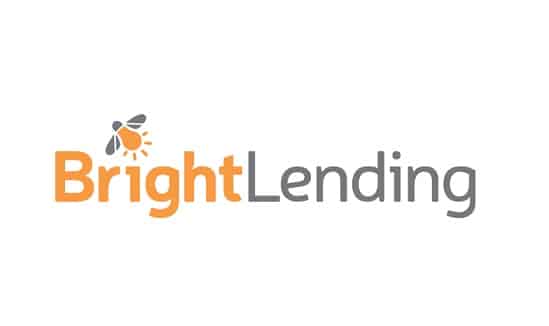What Is a Development Loan 2025

Development Loan Definition: A development loan is a type of loan that is specifically designed to help fund the costs of real estate development projects. These loans are typically used by developers to finance the construction of new buildings, the rehabilitation of existing buildings, or the purchase of land for future development. Development loans can come from a variety of sources, including banks, private lenders, and government-sponsored programs.
Types of development loans
There are several types of development loans, each designed to meet the specific needs of real estate developers. Some of the most common types of development loans include:
- Construction Loans
- Acquisition and Development Loans
- Mezzanine Financing
- Bridge Loans
- Hard Money Loans
- Government-Sponsored Loans
1. Construction Loans:
These are short-term loans that are used to finance the construction of a new building or the rehabilitation of an existing one. Construction loans typically have a term of one to two years and are paid out in increments as the construction project progresses.
2. Acquisition and Development Loans:
These loans are used to purchase land and cover the costs of developing it. This type of loan may also be used to finance the acquisition of an existing building that is being renovated or repurposed for another use.
3. Mezzanine Financing:
This type of loan is typically used by developers who have already secured a traditional loan but need additional funding to complete their project. Mezzanine financing is usually structured as a form of subordinated debt, which means that it ranks below other forms of debt in the event of a default.
4. Bridge Loans:
These are short-term loans that are used to “bridge” the gap between the completion of one project and the start of another. Bridge loans can be used to finance a variety of real estate development projects, including the purchase of land, construction, or the acquisition of an existing building.
5. Hard Money Loans:
These are short-term loans that are typically provided by private investors or specialized lending institutions. Hard money loans are usually more expensive than traditional loans, but they can be a good option for developers who need funding quickly or who have trouble obtaining financing from other sources.
6. Government-Sponsored Loans:
Several government-sponsored programs provide financing for real estate development projects, including the Small Business Administration’s 504 loan program and the U.S. Department of Agriculture’s Rural Development program. These loans typically offer favorable terms, such as low-interest rates and long repayment periods, but they also have strict eligibility requirements that must be met.
Each type of development loan has its own unique set of terms, conditions, and requirements. It’s important for developers to carefully evaluate their options and choose the loan that best meets their specific needs and goals.
Pros of Development Loans:
| Pros | Explanation |
| Access to funding | Development loans provide developers with access to funding that they may not have otherwise. This can be especially important for new or small developers who are just starting. |
| Low-interest rates | Development loans typically offer favorable terms, such as low-interest rates, which can help keep costs low and make it easier for developers to manage their finances. |
| Long repayment periods | Development loans may also have longer repayment periods, which can provide developers with more time to repay the loan and complete their projects. |
| Secured by property | Development loans are often secured by the property that is being developed, which can provide lenders with a level of security that is not available with other types of loans. |
Cons of Development Loans:
| Cons | Explanation |
| High-risk projects | Because development loans are typically used for high-risk projects, they may come with higher interest rates and stricter repayment terms. |
| Personal finances at risk | Development loans may require developers to provide collateral, such as personal assets, which can put their finances at risk if the project fails. |
| Strict eligibility requirements | Some types of development loans, such as government-sponsored loans, have strict eligibility requirements that must be met. |
| Potential for delays | Real estate development projects can be complex and time-consuming, and there is always a risk of delays or unexpected costs. This can make it more difficult for developers to repay their loans on time. |
How to Get a Development Loan
Getting a development loan typically involves several steps, including the following:
Preparation: This includes putting together a comprehensive business plan that outlines the proposed development project, including details on the budget, timeline, and expected outcomes. You will also need to gather financial information and documentation, such as your credit score, income statement, and tax returns.
Identify potential lenders: Research different lenders, including banks, credit unions, and alternative lenders, to find the one that best fits your needs. You may also consider working with a loan broker who can help you find the right lender.
Submit a loan application: Submit a complete loan application to the lender, along with all required documentation, such as your business plan, financial information, and any other relevant information.
Negotiate terms and conditions: Once your loan application is approved, negotiate the terms and conditions of the loan, including the interest rate, repayment schedule, and any collateral requirements.
Close the loan: Sign the loan agreement and complete any other closing requirements, such as paying closing costs or providing collateral. You can then access the loan funds and begin your development project.
It is important to carefully review the terms and conditions of the loan agreement before accepting the loan, as this will impact your ability to repay the loan and the overall success of your development project.
Tips for Getting a Development Loan
Here are some tips for getting a development loan:
Build a strong business plan: A well-prepared business plan can increase your chances of getting a loan. The business plan should include a clear and concise description of your project, a detailed budget, and a timeline for completion.
Show financial stability: Lenders want to see that you have a stable financial history, so it is important to have good credit and a strong income. You may also be required to provide financial statements and tax returns to demonstrate your financial stability.
Get pre-approval: Before you begin looking for properties or making offers, it is a good idea to get pre-approval for your loan. This will give you a better idea of what you can afford and help you avoid wasting time on properties that are out of your price range.
Provide collateral: Some lenders may require collateral, such as real estate, equipment, or personal assets, to secure the loan. Consider what assets you have that can be used as collateral, and make sure you are comfortable with putting them at risk.
Shop around: Different lenders have different requirements and offer different interest rates and terms. It is important to compare offers from multiple lenders to find the best loan for your needs.
Work with an experienced loan officer: An experienced loan officer can help guide you through the loan process and ensure that your loan application is complete and meets the lender’s requirements.
Stay organized: Keep track of all documentation and correspondence related to your loan application. This will help you stay on top of deadlines and ensure that nothing falls through the cracks.
By following these tips, you can increase your chances of getting a development loan and ensure the success of your project.
Property Development Loans Bottom Line
The bottom line of property development loans is that they can provide the funds needed to finance a property development project. These loans can help developers purchase land, construct buildings, and make improvements to existing structures. They can also provide financing for the acquisition and renovation of existing properties.
However, property development loans can also be complex and come with higher interest rates and fees compared to traditional loans. It is important to carefully consider the terms and conditions of the loan, including the interest rate, repayment schedule, and collateral requirements.
To ensure the success of your property development project, it is important to have a well-prepared business plan, show financial stability, and work with an experienced loan officer. By taking these steps, you can increase your chances of getting a loan and minimize the risks associated with property development financing.
Read More: What is a Cancelled Cheque
Conclusion
The conclusion of a development loan refers to the point at which the loan is fully repaid or otherwise satisfied, either through regular payments or a lump sum repayment. This may also involve the transfer of ownership of any assets that were purchased with the loan funds, or the transfer of any equity in a development project. The conclusion of a development loan marks the end of the borrower’s obligations to the lender and signifies the successful completion of the project or business venture that was funded by the loan.
It is important to carefully review the terms and conditions of the loan agreement to ensure that all requirements have been met before the conclusion of the loan.



